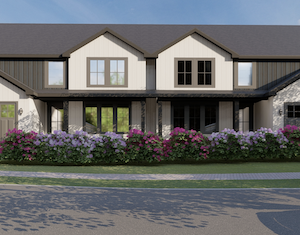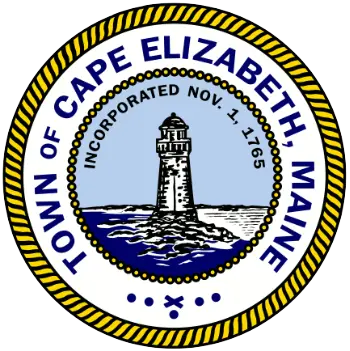Published on September 21, 2023

CORRECTION: The Planning Board voted 4-2 to table [not 5-2]; Andrew Gilbert recused himself from the vote.
At the September 19, 2023 meeting, at the request of the Carr Woods applicants, the Planning Board voted 4-2 in favor of tabling the condominium project until the October 17 Planning Board meeting. Chair Jonathan Sahrbeck and board member Jim Huebener voted against the motion. Board member Andrew Gilbert recused himself.
Kristin Collins, the attorney for the developers, said that as a result of recent public comments a request for continuance was being made, “Coming in up to the last minute and some of it is very detailed with numerous photographs and allegations. We are trying to make sense of it all and respond to it.” Indicating that Ron Goddard [the developer] was unable to attend the meeting due to his son’s wedding, Collins said that Goddard will need to be present to address comments. “Beyond that, it’s a lot of information to take in and in fairness, to have a little more time to respond to that volume seems fair and reasonable,” she added.
“The lion’s share of what was received from the public refers to a cottages project [in Saco, Maine] and the board has already heard from us that this project was not developed by this developer [Goddard]. Mr. Goddard was working in more of a general project capacity on most, but not all of those units in that development,” Collins said. During the public portion of the meeting, residents of the same cottage community, raised issue with the quality of the project, stories of personal hardship associated with their homes, and cautioned the board against moving forward with Goddard as developer for Carr Woods.
Collins said that most of what was submitted via email goes to the client’s technical capacity to do this project. Tabling would allow them to go through the issues to address and/or refute them and, “More importantly, the intent was always to have someone else managing construction on the site up through the completion; our intent is to revise the construction management plan that we have submitted and give Greg Shinberg, of Shinberg Consulting, a broader and longer role in the project and the management of the building of the homes,” Collins added. Additionally, Collins asked the board at what point would the record be officially closed, “So that we don’t continue to get such volume of information the day before a meeting? I would hope that the board could provide some clarity and definition to what public comment might be received so that it is confined to those materials.”
Chair Sahrbeck answered that some of the information gathered at the August meeting was offered in response to questions, which raised issues and some more information which was disputed by some members of the public. However, Sahrbeck added, “Part of it may be coming from the public, but also it is coming from information that is provided by yourselves [applicant] as well.” The reason Sahrbeck gave for not wanting to give a blanket, “Yes we will table this,” is due in part because the board requested guidance from Town attorney Mary Costigan in understanding what legally constitutes proof of financial and technical capacity. “Quite frankly, it would have to be heard at some point, so why not try to do as much as we can tonight and see where we go from there because it is not a guaranty that we are going to allow a table of this,” Sahrbeck said.
Preferring to hear feedback from Costigan in public, the board opted not to move into executive session. Costigan explained that, “Technical capacity is the capacity to complete the project that is before you. On a small scale such as a home, a listing of the builders, contractors, and consultants is enough; it’s rare that it’s dug into in such detail as you are being asked to here. They just have to show you that they have a team that they have compiled that has technical expertise to be able to complete this project that they are presenting to you; experienced architects, builders, etc.”
Board member Derek LaVallee asked, “What is the objective standard we have to use when assessing technical capabilities? Is it in the original application or in subsequent documentation not withstanding what we have received in the last 48 hours?” Costigan answered that as a board, “Everything that is presented to you in those meetings is the record and you are making your decision on the record that is before you. It includes the information on the initial application, all public comment that you receive up until the point you say you are not receiving any more information. Any information that you receive as part of this official proceedings would be information that you can rely on while you make your decision.”
Costigan said that with regard to financial capacity, it generally means that the financing is in place to complete the project, but many times, “It really focuses on the public improvements and performance guaranty. The things that the Town cares about the most with a project; those things are covered by the performance guaranty and are generally the primary focus when it comes to financial capacity.” A demonstration of financial capacity is typically a letter from a bank, a letter from a lender, a bond; some evidence that there is money ready to go to be able to cover those public improvements, “So that if the developer gets up and leaves before completion or are not up to the Town’s standards, the Town can then take the money and finish the project,” she added.
Town Planner Maureen O’Meara explained that for this particular project, a performance guaranty includes all the vehicle access, “It’s the private road we would care about; the sewer and the water line; the substantial stormwater infrastructure being installed; and we would also care about preservation of the landscape since it is part of their buffering plan.” Additionally, O’Meara said that the Town does not accept bonds, “A letter of credit from an FDIC institution or an escrow account is what the Town accepts.”
In general, Costigan added, “What the board is concerned about with technical and financial capacity is that you want to have the confidence that they can complete what they say they are going to do. You want to have confidence that they have a good team set up and they are not going to leave it in a state where the town has to come in and take over. It’s about, what would the impact be to the town in the event that this thing just flops?”
In review, Chair Sahrbeck said, “Basically, we have two paths that we can take tonight: Go forward and deny the request to table and talk it through tonight or; Grant the request to table for next month.” Board member Jim Huebener said, “I’m torn. I am not sure what kind of response they could give that would make me change my mind to show that they have technical capacity to complete this project based on emails and photos received. If Ron Goddard and his crew are involved in this project, I will not approve this project and I’m not convinced that tabling this project would change that.”
Palmer said, “The project has been before the board for a while, but the current components are relatively new since this June. The project has been vetted and has received preliminary approval. Unfortunately, the two are wed together as one vote; that’s where I am struggling. If the current component doesn’t have the financial and technical capacity to advance the project, the board has the right to deny the project,” and wondered if denying it now would force a delay before the board could consider the project again. O’Meara said, “There is nothing in our ordinance that says they have to delay before coming back to the board. They would just have to start from square one as if this has never been in front of the board.”
Shinberg, who was recently hired by the applicant to oversee the project, provided the board with some insight into what his experience offered, “My role on this project would be to work with the Town to get the letter of credit; oversee the hiring of a site contractor, and I would be there numerous times before and during all construction. I would be there to make sure all the terms of the plan are done correctly. I agree that it is a complex project, but I have done complex projects. There is a lot of protection to make sure the work is done correctly.”
On the question raised by Collins regarding the “closing the record,” Sahrbeck said, “In my eight and half years on the board, I don’t think I’ve ever seen a record be closed. I don’t think it is fair to the public or to the board or to the applicant.” O’Meara supported the sentiment, “The Town has very strong support of public comment and I would be concerned with closing the record.” Palmer said, that if the record was not closed, he would lean towards tabling. Lavallee agreed.
Sahrbeck said, “I still have a lot of questions and I don’t feel like we’ve gotten information that we need and I feel like the applicant has missed opportunities to address some concerns. I am in the position that I will probably vote no on a motion to table, but mostly because I think it needs to send a message to the applicant. We already said no further continuance on one aspect of this. I think Mr. Shinberg’s involvement is a step in the right direction, but I think it’s a step that should have been taken months ago after concerns were raised by this board. I think if we went into another situation a month from now if this is tabled, if I am sitting here with questions that have been raised and I’m not having answers, I will not be approving the project. We are not closing the record.”
Board member Matthew Caton made a motion to table the application until the next Planning Board meeting on October 17; LaVallee seconded it. Sahrbeck and Huebener voted against.
“In fairness to the applicant and the public,” Sahrbeck asked board members to send any requests for more information to the Town Planner by noon, on Thursday, September 21.
